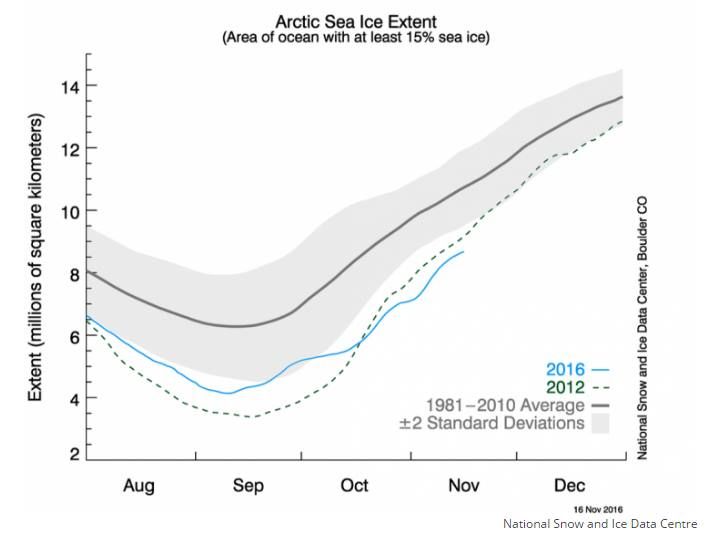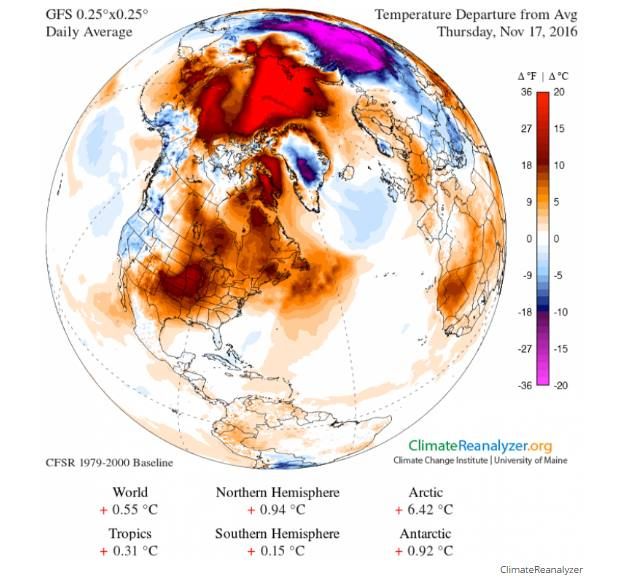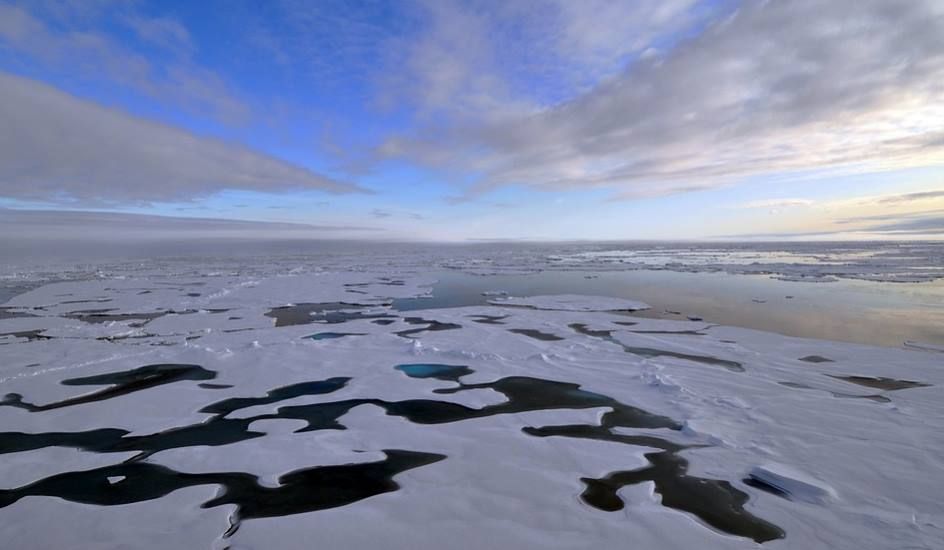Alarming changes in the Arctic. It’s 20 degrees warmer. Celsius
The state of sea ice in the Arctic is alarmingly small for this time of year. The same is true of the Antarctic ice sheet. The polar regions are changing faster than we predicted. Experts warn that this will have consequences for the entire planet.
LóThe sea is not coming in as fast as it did in earlier years. The Arctic ice is close to record low measuringów. Antarctica, on whichówhere ice has been increasing so far despite global warming is also at record lows. The current state of affairs was unprecedented in history measuringów.
Warm air masses from over the Atlantic are responsible for this situation, któThey came to the Barents Sea, the Kara Sea and the Laptev Seaów. Also note that 2016 is the warmest year on record. Earlier years were also record warm.

As a result of the weather changes, the Arctic Ocean is not freezing over and temperatures there are now reaching – 5 degrees Celsius. Celsius. Normally at this time of year there is – 25. Celsius. The global extent of sea ice in November, and this month should see the most of it, is five million lessóin a kilometeróin square.

– It is about 20 st. Celsius warmer than normal over much of the Arctic Ocean. Similar anomalies occur over póNorth-Central Asia – said „The Washington Post” Jennifer Francis of Rutgers State University.
As Francis noted, it is also warmer than usual for this time of year in Siberia, but also in Greenland, Alaska and pónortheastern Canada. In addition to warm air, we have róAlso, the water is warmer than usual. As the oceans store heat, water and air temperatures rise.
The extremely high concentration of gas is responsible for everythingóin the greenhouse. The situation will get worse as climate is a system of interconnected vessels. Higher temperatures will cause huge layers of snow and ice to disappear, whichóThey’re reflecting solar radiation. Areas without this protective layer will accumulate heat by emitting increasing amounts of methane, leading to even higher temperatures. Below is a video showing the global temperature rise over 100 years.
